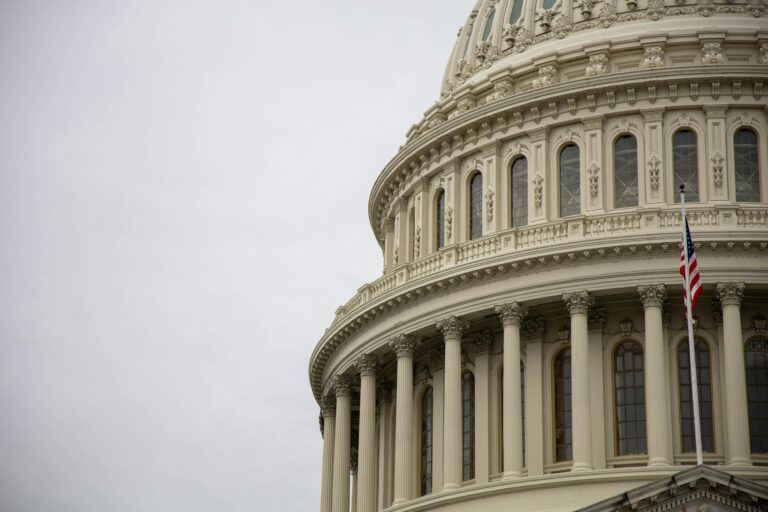
Artificial Intelligence (AI) has emerged as a transformative force across industries, revolutionizing everything from healthcare and finance to transportation and communication. As its capabilities continue to expand, AI is increasingly being considered for more complex and sensitive roles—including political decision-making. The prospect of integrating AI into the political arena raises intriguing possibilities: from streamlining bureaucratic processes and optimizing resource allocation to enhancing transparency and predictive policy-making. However, the potential benefits of AI must be weighed against the significant risks and ethical concerns it poses, particularly when it comes to democratic governance, accountability, and human rights.
This article explores the potential role of AI in political decision-making, examining both its benefits and challenges. It will also delve into the ethical considerations that must be addressed to ensure that AI is used responsibly in shaping the future of politics and governance.
The Potential Benefits of AI in Political Decision-Making
AI has the capacity to assist in numerous aspects of political governance, offering potential benefits that could improve the efficiency, transparency, and effectiveness of decision-making processes. Below are several areas where AI could make a positive impact in politics.
1. Data Analysis and Policy Optimization
One of AI’s most powerful attributes is its ability to process vast amounts of data quickly and accurately. In the political realm, AI can be used to analyze complex data sets, such as economic indicators, demographic statistics, healthcare outcomes, and environmental data. By providing policymakers with comprehensive insights, AI can help governments make evidence-based decisions that are tailored to the specific needs of the population.
For example, AI algorithms can be used to identify patterns and correlations in public health data, enabling policymakers to allocate resources more effectively during crises such as pandemics. AI could also be employed to optimize urban planning by analyzing traffic patterns, population growth, and environmental factors to determine the best infrastructure investments.
2. Streamlining Bureaucracy
Government bureaucracies are often criticized for their inefficiency and sluggishness. AI has the potential to streamline bureaucratic processes, reduce paperwork, and automate routine administrative tasks. By using AI-powered systems to manage tasks such as document processing, resource allocation, and compliance monitoring, governments can improve efficiency and reduce costs.
Additionally, AI can be used to assist in the management of public services. For instance, AI chatbots can provide citizens with information about government programs, guide them through administrative procedures, and even help them access social services. This can enhance citizen engagement and improve the overall quality of governance.
3. Enhancing Transparency and Combating Corruption
AI could also play a role in enhancing transparency and combating corruption in political systems. By using AI to monitor government transactions, budgets, and procurement processes, irregularities can be detected in real-time. Machine learning algorithms can identify suspicious patterns of behavior, such as inflated contracts or misallocation of funds, which can then be flagged for further investigation by auditors or anti-corruption agencies.
For example, AI systems have already been used in some countries to monitor public procurement, helping to identify instances of favoritism or fraud in the awarding of government contracts. These systems can contribute to greater accountability and help build trust in political institutions by ensuring that resources are used appropriately.
4. Predictive Decision-Making
AI’s predictive capabilities can be used to anticipate future challenges and help policymakers prepare for potential crises. Machine learning models can analyze historical data to predict the likelihood of certain events, such as economic downturns, natural disasters, or political instability. This information can help governments take proactive measures to mitigate risks and ensure better preparedness.
For instance, AI models can be used to predict the impact of climate change on agriculture, enabling governments to plan for food security and allocate resources more effectively. Similarly, AI can be used to assess the potential outcomes of different policy options, allowing policymakers to make more informed decisions.
The Risks and Challenges of AI in Political Decision-Making
While the potential benefits of AI in political decision-making are significant, there are also substantial risks and challenges that must be addressed. These challenges range from technical limitations to ethical concerns related to accountability, bias, and the impact on democratic governance.
1. Bias and Fairness
One of the major challenges of using AI in political decision-making is the risk of bias in AI algorithms. AI systems are trained on historical data, and if that data is biased, the resulting decisions may perpetuate or even exacerbate existing inequalities. Bias in AI can occur due to various factors, including biased training data, human errors in data labeling, or the presence of systemic discrimination in historical records.
In a political context, biased AI systems could lead to policies that disproportionately disadvantage certain groups, reinforcing existing social and economic inequalities. For example, if an AI algorithm used for predictive policing is trained on historical crime data that reflects discriminatory practices, it may unfairly target marginalized communities. This raises serious concerns about the fairness and legitimacy of AI-driven decisions in the political arena.
2. Lack of Accountability and Transparency
AI systems often operate as “black boxes,” meaning that their decision-making processes are difficult to understand, even for the engineers who design them. This lack of transparency poses a significant challenge when it comes to political decision-making, where accountability is crucial. Citizens need to understand how decisions that affect their lives are being made, and policymakers must be able to justify their actions.
The opacity of AI algorithms makes it difficult to hold anyone accountable when mistakes are made. If an AI system makes an erroneous decision—such as denying social benefits to eligible recipients—who should be held responsible? The lack of clear accountability mechanisms in the use of AI in governance undermines the principles of democratic oversight and public trust.
3. Threat to Democratic Processes
The use of AI in political decision-making also raises concerns about its impact on democratic processes. AI could potentially be used to manipulate public opinion or influence election outcomes. For instance, AI-powered algorithms can be used to target voters with personalized political advertisements based on their online behavior, creating echo chambers that reinforce existing beliefs and limit exposure to diverse perspectives. This practice, often referred to as “microtargeting,” can contribute to increased polarization and weaken the foundation of informed democratic debate.
Moreover, there is a risk that AI could be used by authoritarian governments to suppress dissent, monitor citizens, and control political outcomes. The potential for AI to be used as a tool of political manipulation and surveillance raises important questions about how to ensure that AI is used in a manner consistent with democratic values.
4. Data Privacy and Security
The effective use of AI in political decision-making relies on access to vast amounts of data, including sensitive personal information. This raises concerns about data privacy and the security of individuals’ information. Governments must ensure that data used for AI decision-making is collected, stored, and processed in a way that respects citizens’ privacy rights and complies with data protection regulations.
Additionally, the centralization of large datasets in government systems creates a target for cyber-attacks. If election systems, public databases, or other critical political infrastructures are compromised, the consequences could be catastrophic for both citizens’ privacy and the integrity of political processes.
Ethical Considerations for the Use of AI in Politics
Given the significant challenges and risks associated with the use of AI in political decision-making, several ethical considerations must be addressed to ensure that AI is used responsibly and in ways that enhance, rather than undermine, democratic governance.
1. Ensuring Transparency and Explainability
To maintain public trust, it is crucial that AI systems used in political decision-making are transparent and explainable. Governments must be able to provide clear explanations for the decisions made by AI systems, including how algorithms arrive at particular conclusions. This will require the development of AI models that are interpretable and understandable, as well as regulatory frameworks that mandate transparency in the use of AI by public institutions.
2. Establishing Accountability Mechanisms
Accountability is a core principle of democratic governance, and this must extend to AI-driven decisions. Governments should establish clear accountability frameworks that determine who is responsible for the actions and outcomes of AI systems. This could include mechanisms for appealing AI-driven decisions, as well as oversight bodies tasked with monitoring the ethical use of AI in governance.
3. Mitigating Bias and Ensuring Fairness
Addressing bias in AI systems is critical to ensuring that their use in political decision-making does not lead to unfair or discriminatory outcomes. Governments and AI developers must work to ensure that training data is representative and that algorithms are rigorously tested for bias before being deployed. Diverse teams of developers and stakeholders, including representatives from marginalized communities, should be involved in the design and implementation of AI systems to ensure that diverse perspectives are considered.
4. Protecting Privacy and Data Security
The collection and use of data for AI decision-making must be conducted in accordance with data protection laws and ethical standards that prioritize citizens’ privacy rights. Governments should implement robust data security measures to protect against unauthorized access and data breaches. Additionally, individuals should have control over how their data is used and should be informed about how their information is being utilized by AI systems.
5. Maintaining Human Oversight
AI should be viewed as a tool to assist policymakers, rather than as a replacement for human decision-making. Human oversight is essential to ensure that decisions are made with consideration for ethical, cultural, and contextual factors that AI may not fully understand. Policymakers must retain the authority to review, modify, or override AI-driven recommendations to ensure that decisions align with democratic values and public interest.
Conclusion: The Future of AI in Political Decision-Making
The integration of AI into political decision-making presents both exciting opportunities and significant challenges. AI has the potential to improve the efficiency of governance, enhance transparency, and enable more data-driven policymaking. However, these benefits must be balanced against the risks of bias, lack of accountability, threats to democratic processes, and concerns about privacy and data security.
To ensure that AI is used responsibly in the political sphere, governments must develop ethical guidelines, regulatory frameworks, and accountability mechanisms that prioritize transparency, fairness, and public trust. By addressing these ethical considerations, AI can be harnessed as a powerful tool to support policymakers in addressing complex challenges while safeguarding the values of democracy and individual rights.
As we move into the future, the role of AI in politics will likely continue to evolve. Whether AI becomes a force for enhancing democracy or a tool for undermining it will depend largely on how societies choose to govern its development and application. The challenge for policymakers, technologists, and citizens alike is to ensure that AI serves the public good, respects human rights, and strengthens the foundations of democratic governance.




